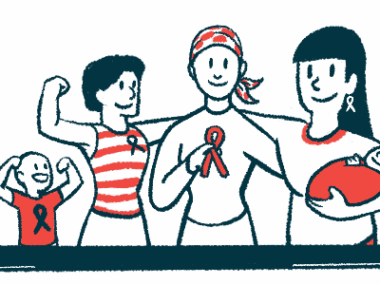Complementary therapies improve my quality of life with sickle cell
These practices would benefit more patients if they were more accessible
Written by |

Would you believe me if I told you that I was once hospitalized with a sickle cell crisis, and a reflexology foot massage is what caused the pain to subside?
Probably not, right?
I know it sounds rather strange. I’d been given all sorts of medications that were supposed to relieve my pain, but none of them worked. Then a lovely lady approached my bedside and told me about complementary medicine, in which practices outside the mainstream are used in conjunction with conventional treatments. She said she was a volunteer at the hospital who specialized in reflexology and offered me a foot massage.
I admit I was skeptical at first and required some persuasion before I consented. But it was definitely worth my while. Before she started, I was in a lot of pain, and I was discharged home later that day with no pain.
I was shocked!
This experience led me to explore complementary medicine and whether it should have a place in sickle cell treatment plans. I’d first heard of it during my first year of college, when one of my roommates was studying complementary and alternative therapies. At that point, I assumed it was closely linked to mainstream medicine. My worst health experiences had yet to occur, however, so I wasn’t intrigued enough to research it.
I’ve accepted that I’ll always have sickle cell disease, but as I grow older, I’m working to maximize my quality of life with the illness. I’d recommend this approach for anyone with a long-term illness. Although I may not be able to live as the masses do, I refuse to accept a poor quality of life. I’m trying to make the most of the cards I’ve been dealt by finding ways to truly live with sickle cell.
Exploring complementary practices
Complementary and holistic medicine help to boost my quality of life. I think the psychological burden of living with sickle cell is greatly understated. Years ago, I realized that it’s not “normal” to be extremely ill and in intensive care one week and then be expected to return to life as usual the next. I sought out talk therapy services and availed these for a number of years. I also use massage therapy to help manage my pain and promote blood circulation.
I should note, however, that these therapies came at a great financial cost. Because they weren’t part of my formal care plan, I had to seek them out and fund them myself. I eventually had to limit my session frequency because of the cost.
I’m thankful I was able to afford these services at all; not everyone can. In fact, there could come a point when I can no longer afford them. Chronic illnesses like sickle cell can change your circumstances in an instant.
There are other practices I’m interested in but haven’t been able to try. For instance, I’ve always wanted to have a diet and workout plan tailored around my illness and personalized to my needs. Unfortunately, I’ve not yet found dietitians or trainers with a detailed understanding of sickle cell.
Similarly, when I was diagnosed with avascular necrosis, I would’ve liked to do physiotherapy to maintain as much hip mobility as possible before the condition got worse. Sadly, the U.K.’s National Health Service didn’t offer this kind of therapy, and I couldn’t afford it privately. As a result, I’ve suffered a significant decline in my hip (and now shoulder) mobility.
I’d petition healthcare systems globally to ensure sickle cell patients are getting the support they need to live well daily. To me, this help could include talk therapy and other mental healthcare, diet and nutrition services, reflexology, massage therapy, physiotherapy, and tailored exercise plans. I suspect there are other complementary therapies I’m unaware of that could help improve quality of life for sickle cell patients.
As a sickle cell patient, have you tried any complementary or alternative therapies that boosted your quality of life? Please share your experiences in the comments below.
Note: Sickle Cell Disease News is strictly a news and information website about the disease. It does not provide medical advice, diagnosis, or treatment. This content is not intended to be a substitute for professional medical advice, diagnosis, or treatment. Always seek the advice of your physician or other qualified health provider with any questions you may have regarding a medical condition. Never disregard professional medical advice or delay in seeking it because of something you have read on this website. The opinions expressed in this column are not those of Sickle Cell Disease News or its parent company, Bionews, and are intended to spark discussion about issues pertaining to sickle cell disease.




Ola Jide
Medical treatment for SCD is a luxury when you are poor or live outside urban areas in Africa. So you fully embrace alternative treatments, assuming youve somehow been diagnosed with SCD. Advised at one time not to accept blood transfusion, I took to a herbal therapy which, for 20 years, has liberated me from the shackles of regular 3/4 year cycle of blood transfusion from birth.
Chanel
Hi would love to know more about the herbal medicine that you have been using to help
OLISAEMEKA ARTHUR EJINDU
Ola Jide, that's great, about your treatment with herbal medicine , but I know it will be to a certain time, if your growing older, will the herbal medicine held out ? especially when a patient start developing all kind of ulcers. For me if a patient with SCD can embrace both where ever you find your self. am 61 years old, born in UK , took me back to Nigeria at year 6. and I came back to UK 10 years age to embrace alternative treatment. so they both helps.